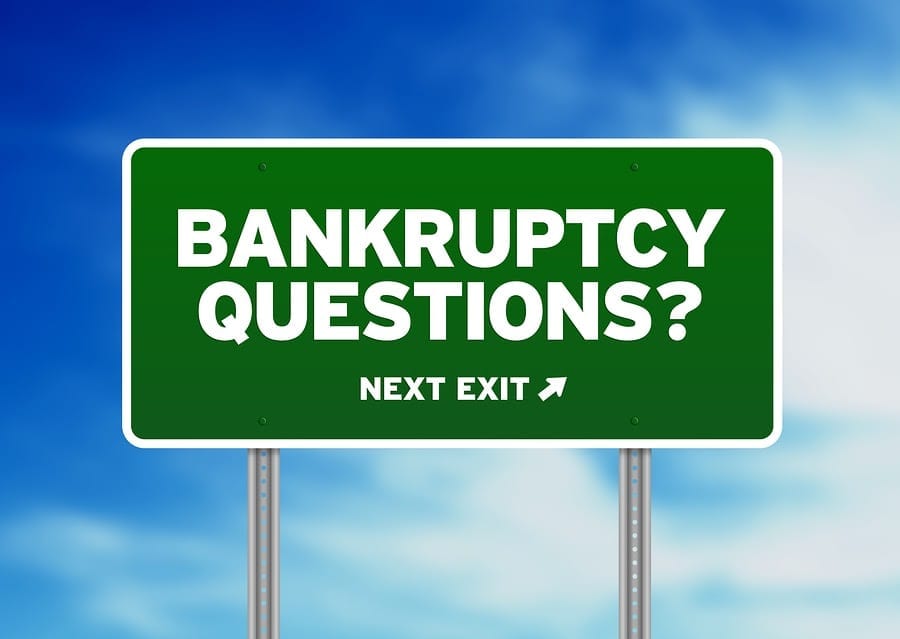If you live in Pennsylvania and are thinking about filing for bankruptcy, you will likely file using Chapter 7 or Chapter 13. But how do you know which of these bankruptcy options is right for you? Our Philadelphia bankruptcy attorneys explain the major differences between Chapter 7 and Chapter 13, including some potential pros and cons of each chapter.
Types of Bankruptcy for PA Residents
While there are many types of bankruptcy, only two are of concern to most individual debtors: Chapter 7, which is a liquidation process, and Chapter 13, which involves creating a long-term reorganization plan to pay off outstanding debts. A handful of individuals use Chapter 11, but only under rare circumstances. For context, U.S. Bankruptcy Court for the Eastern District of Pennsylvania statistics reveal over 8,000 combined Chapter 7 and 13 cases during 2016, with fewer than 100 Chapter 11 cases during the same period. Due to how seldom Chapter 11 is utilized by individuals, this article will focus on Chapter 7 and Chapter 13 bankruptcy.
Chapter 7 Bankruptcy in PA
Chapter 7 bankruptcy is meant for filers who have limited income and assets with which to pay off their debts. Before declaring Chapter 7 bankruptcy, you will be required to go through a process called “means testing,” which plays a large role in determining whether you should file under Chapter 7 or Chapter 13. If means testing reveals that you earn too much income in comparison to other Pennsylvania households of equivalent size, you may be prohibited from filing under Chapter 7.
In Chapter 7, a court-appointed trustee is assigned to administer the debtor’s bankruptcy estate, which includes the debtor’s property at the time he or she filed for bankruptcy. The trustee is authorized to sell assets to creditors, such as jewelry, unless the asset is protected by a bankruptcy exemption. Philadelphia residents may choose between the Pennsylvania bankruptcy exemptions and the federal bankruptcy exemptions. Your Chapter 7 bankruptcy lawyer will evaluate your assets to determine which set of exemptions would better guard your property from seizure by the trustee.
After the trustee has distributed the proceeds among the filer’s creditors, most of the filer’s debts will be discharged, which means the debtor will no longer be liable for them. With a few minor differences, the same debts are dischargeable in Chapter 7 and Chapter 13, including medical debt, credit card, and business-related debt.
Chapter 7 is a fast process, often taking just six months or less. Besides the speed of Chapter 7, another benefit is that many filers are able to keep their homes and vehicles, even though Chapter 7 is a liquidation bankruptcy. On the other hand, the fee to file Chapter 7 is slightly higher than the Chapter 13 filing fee, and there is greater risk of losing valuable property. Additionally, Chapter 7 can delay but not prevent foreclosure, a major difference from Chapter 13.
Here are the takeaway points that debtors should know about Chapter 7 bankruptcy in Pennsylvania:
- Other Names – Liquidation, ordinary bankruptcy, straight bankruptcy
- Duration – Usually about four to six months
- Dischargeable Debts – Credit card debt, medical debt, personal loan debt, past due utility bills, business debt, more
- Time on Credit Report – Up to 10 years
- Pros – Faster and less complicated than Chapter 13, no payment plan
- Cons – Higher filing fees, greater potential for loss of property
Before you file Chapter 7, be sure to review your options carefully with a bankruptcy attorney in Philadelphia. There is a possibility that filing Chapter 13 is the better course of action, depending on your financial circumstances. Continue reading to learn more about how Chapter 13 differs from Chapter 7 bankruptcy.
Chapter 13 Bankruptcy in PA
Chapter 13 bankruptcy is called “reorganization” because all Chapter 13 filers must propose a three- or five-year reorganization plan. Your Chapter 13 attorney will help you draft this plan, which must gain the court’s approval before your case can proceed further.
The purpose of the reorganization plan is to establish terms by which the debtor will make full or partial monthly payments on secured debts (such as auto loans and home mortgages), unsecured priority debts (such as alimony and child support), and general unsecured debts (such as credit card bills), generally in that order. In short, the reorganization plan creates a financial contract outlining the next three to five years.
In return for making monthly payments in a timely and consistent manner, the debtor will be permitted to keep all of his or her property, which is a major advantage over Chapter 7. Unlike Chapter 7, which offers only temporary protection against debt collection, Chapter 13 can actually prevent foreclosure and vehicle repossession from occurring. However, because Chapter 13 requires sufficient disposable income to fund a three- to five-year reorganization plan, it may not be a practical option for debtors with limited income to spend.
In summation, here are the key facts filers should understand about Chapter 13 bankruptcy in Pennsylvania:
- Other Names – Reorganization, wage earner’s plan
- Duration – Three to five years
- Dischargeable Debts – Same as Chapter 7 plus several additions, including debts related to divorce settlements and willful property damage
- Time on Credit Report – Up to 10 years, usually removed after seven
- Pros – Foreclosure prevention, repossession protection, more debts discharged, lower filing fees
- Cons – Takes longer than Chapter 7, higher income requirements to file
In both chapters of bankruptcy, federal regulations require filers to pay filing fees (unless waived), abide by court orders, and complete mandatory debtor education and credit counseling courses. Failure to meet these standards may result in dismissal of the case.
Contact Our Philadelphia Chapter 7 Lawyers for Help Filing for Bankruptcy
Before you file for Chapter 7 or Chapter 13 in Pennsylvania, you should review your options with the experienced attorneys of Sadek Bankruptcy Law Offices Law Offices. With a skilled legal team comprised of Bucks County bankruptcy lawyers, Delaware County bankruptcy lawyers, and more, our law firm has successfully helped thousands of people gain freedom from crushing debt.
The attorneys of Sadek Bankruptcy Law Offices Law Offices represent debtors throughout the Philadelphia region, including individual filers, married couples who are filing jointly, and small business owners taking advantage of Chapter 7 or Chapter 13. If you live in or near Philadelphia and want to file for bankruptcy, contact our law offices at (215)-545-0008 for a free and completely confidential legal consultation about your filing options.







